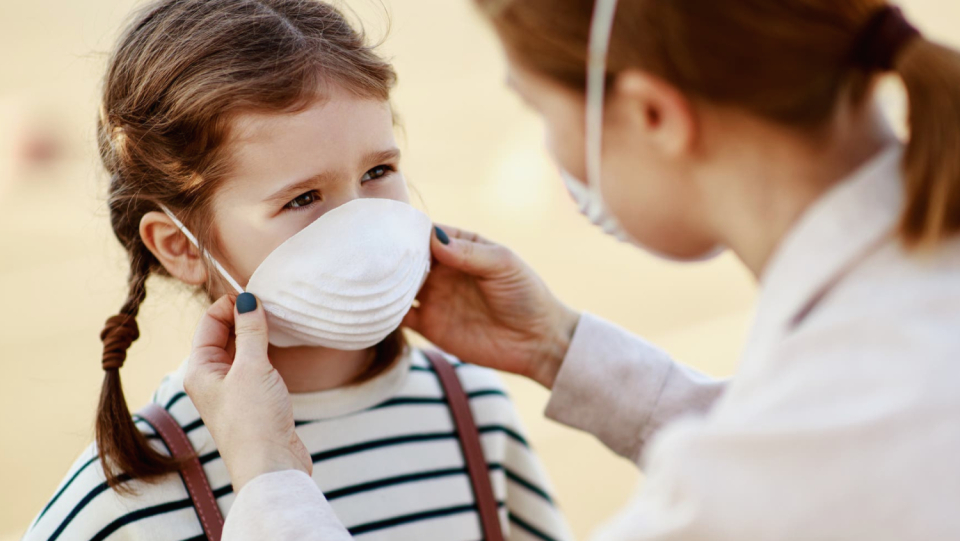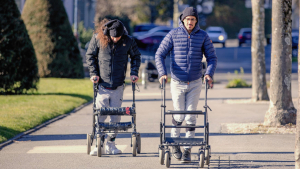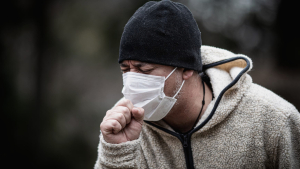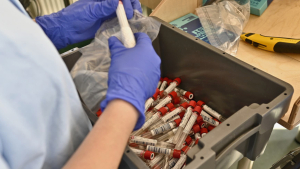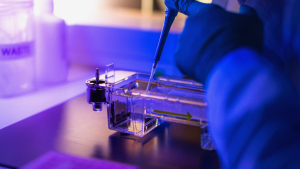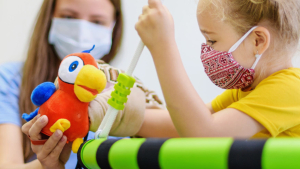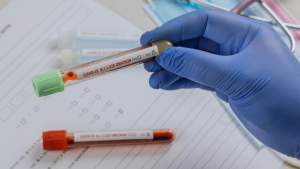Experiments on monkeys support the hypothesis that the amount of inhaled viruses has an influence on the severity of the course of the disease. According to this, long-tailed macaques became infected above a certain dose of virus and developed antibodies – fever, however, they only got fever from a significantly higher threshold, reports a team led by Paul A. Dabisch from the National Biodefense Analysis and Countermeasures Center of the USA (NBACC). For their study, which has now been published in »PLOS Pathogens«, it had 16 of the animals inhale different concentrations of a virus-containing aerosol and checked whether they produced antibodies and developed a fever. The working group concludes that a high dose of the virus could also make the disease more severe in humans and that small amounts of virus often only cause a symptomless infection.
Already at the very beginning of the pandemic, reports of particularly severe courses among medical personnel in Wuhan indicated that the amount of inhaled viruses could affect the course of the disease. Several systematic studies, including the Heinsberg study of April 2020, supported the hypothesis. However, it is difficult to systematically prove the connection in humans, because the amount of aerosol inhaled is at best roughly known. For their experiments, Dabisch's working group now produced an aerosol with a known droplet size and had the animals inhale defined amounts of it in order to determine a dose-effect relationship as well as thresholds for infection and serious illness.
Because of the small number of animals, the values obtained are subject to great uncertainties. However, the team believes that the difference between the threshold values for educated antibodies and symptomatic illness is real. This once again confirms the importance of measures such as masks, ventilation and distance, which all reduce the virus dose, writes in the publication. Another consequence of the finding is that low quantities of virus probably generate immunity without a noticeable disease.
According to some experts, this has a significant impact on population-wide immune protection against Covid-19. "In the longer term, this effect is likely to contribute significantly to overall immunity in the population," writes virologist Marco Binder from the DKFZ on Twitter. It is conceivable that in the future repeated infections with small amounts of virus will lead to a "silent infection" with good immune protection. It is still unclear what effects the vaccinations have on this relationship between virus quantity and infection. Thus, it is conceivable that the protection is based on the fact that the viral dose required for a disease is much higher in vaccinated people. Infections below this threshold could be a natural booster for vaccinated people in the long term, Binder speculates.







